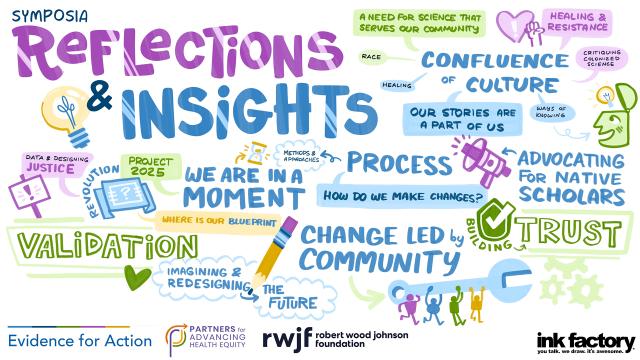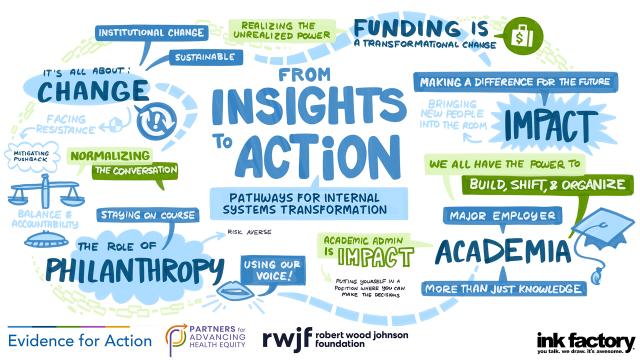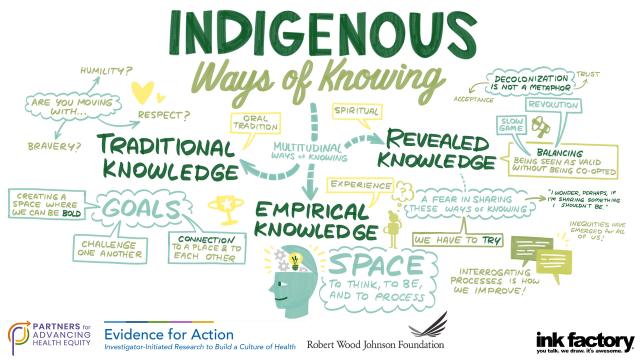The Ways of Knowing Symposia included a series of five collaborative events to advance the Ways of Knowing Initiative. These events focused on cultivating a more holistic appreciation of the different ways people understand the world to foster a more inclusive and equitable standard for health research. Learn more about each of the five symposia below.
Kickoff Event: New Orleans, Louisiana
March 7, 2024
This interactive, hybrid kickoff event set the stage for the symposia series. The session featured discussion among leadership from the Robert Wood Johnson Foundation, Evidence for Action, Partners for Advancing Health Equity, and symposia co-organizers.
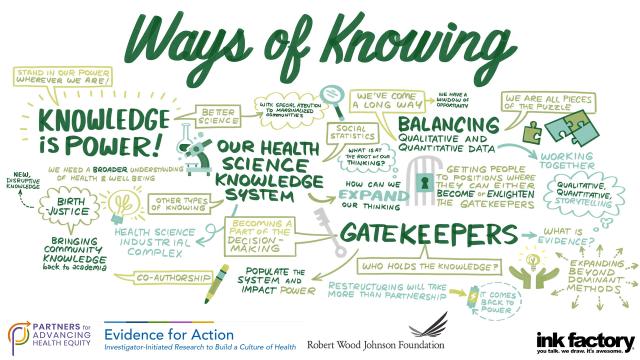
Art by Reilly Branson on behalf of Ink Factory
Indigenous Ways of Knowing, Pray, Montana
May 7 - 10, 2024
In May, Drs. Melissa Walls and Joseph Gone facilitated the Indigenous Ways of Knowing Symposium in Pray, Montana. A small, intimate group of Indigenous research scholars discussed the significance of Indigenous Ways of Knowing in addressing health inequities and promoting health. Participants for the gathering were selected from a network of colleagues engaged in scholarship surrounding Indigenous Ways of Knowing and Indigenous research methodologies. The participants represented diverse opinions, disciplines, and Tribal Nations for comprehensive and inclusive representation of Indigenous knowledges.
Transforming Community-Led Health Research, Greenville, North Carolina
August 13 - 16, 2024
Roughly 45 community members and advocates gathered in Greenville, North Carolina, to engage in peer networking and heartfelt conversations about overcoming the systemic barriers to developing and sustaining authentic and meaningful community-led health research partnerships. This symposium was co-organized with Hope to Thrive and Community-Campus Partnerships for Health.
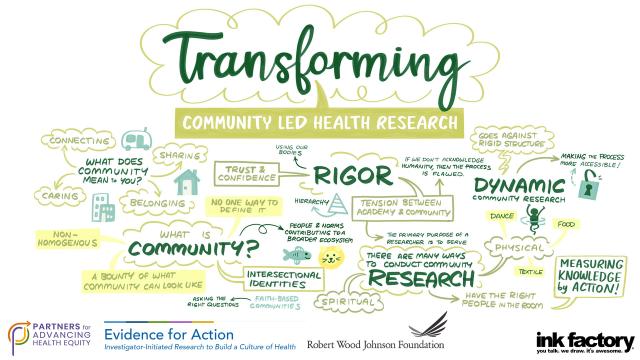
Art by Reilly Branson on behalf of Ink Factory
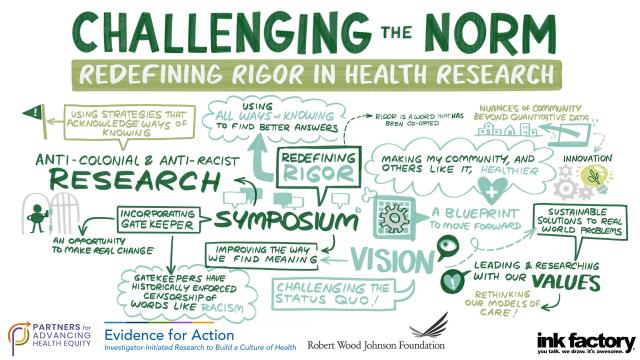
Art by Reilly Branson on behalf of Ink Factory
Challenging the Norm: Redefining Rigor in Health Research, Washington, D.C.
October 16 - 18, 2024
In October, 35 antiracist and anticolonial health research scholars, along with 10 “decision-makers” in the health sciences, convened in the DC metro area. They explored the necessary steps to overcome systemic barriers to adopting and applying antiracist and anticolonial research approaches, practices, and methods in health research. This symposium was co-organized with Drs. Melody Goodman, Tongtan “Bert” Chantarat, and Adolfo Cuevas.
Culminating Event, St. Louis, Missouri
November 20, 2024
The Ways of Knowing Symposia culminating event, a preconference of the 2024 Facing Race National Conference on November 20 in St. Louis, MO, marked the close of a series of collaborative events focused on fostering a more inclusive and equitable appreciation of diverse ways of understanding the world and transforming how knowledge is created, valued, and distributed in the health sciences field. The event offered an opportunity for co-learning around structural innovations for a more inclusive, anticolonial, and antiracist health science knowledge system.
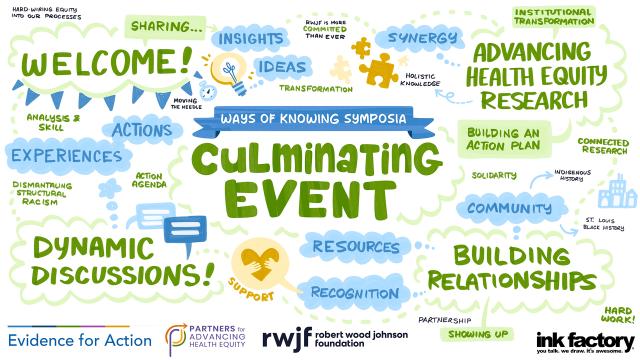
Art by Reilly Branson from InkFactory
